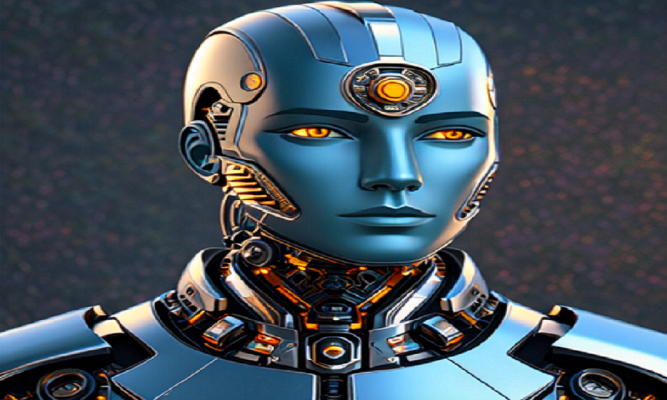
Is Artificial Intelligence Dependent on Humans?
“In an ever-evolving technological landscape, one question continues to captivate both enthusiasts and experts: To what extent is artificial intelligence (AI) dependent on human expertise? As AI systems become more advanced and integrated into various industries, understanding their dependence on human input and expertise is crucial for grasping their impact, limitations, and future potential.”
The Foundation of AI: Human Expertise
Despite its remarkable capabilities, artificial intelligence (AI) is built on human expertise. Every AI system results from intricate programming, algorithm design, and model training—all requiring the skills of data scientists, engineers, and developers. These professionals craft the frameworks that enable AI to function effectively.
At the core of AI development is machine learning, where systems are trained to recognize patterns, make predictions, and improve accuracy over time. This process starts with human programmers who write algorithms guiding how machines interpret and process data. These algorithms are informed by years of research in mathematics, computer science, and cognitive psychology—fields driven by human expertise.
AI development also requires ongoing human oversight. Machine learning models must be trained using vast amounts of data, with their accuracy reliant on human-driven processes like parameter tuning, testing, and validation. Engineers must refine these models to ensure they meet performance standards, often involving repeated human intervention.
The Role of Data: A Human-Centered Process
Data fuels artificial intelligence (AI) systems. Every decision and action an AI takes is based on the data it has been trained on, but this data is a product of human expertise—collected, curated, labeled, and fed into the system.
Before an AI can make informed decisions, data must be processed and prepared. Humans determine relevant datasets, clean the data, and often label it to ensure accurate learning. For instance, training an AI to recognize images of cats involves collecting and labeling thousands of pictures. The AI learns from these human-generated labels, adjusting its models based on detected patterns.
AI performance is linked to the quality of data it is trained on. Poor-quality data, such as biased or incomplete datasets, can lead to flawed outcomes. For example, a facial recognition AI trained on images from one demographic may struggle with others, an issue of significant ethical concern.
This highlights the necessity of human involvement in data collection and preparation. AI’s reliance on human-generated data means it cannot be truly independent. Its “intelligence” is shaped by the information provided by humans, and without careful oversight, the results can be misleading or biased.
Ethical Oversight: Guiding AI’s Path
Artificial intelligence’s (AI) growing influence in sectors like healthcare, finance, and autonomous vehicles raises ethical questions about accountability and fairness, highlighting the need for ongoing human expertise and ethical oversight.
AI decisions stem from human-designed algorithms, which reflect the values and biases of their creators, whether intentional or not. For instance, an AI used in hiring could unintentionally discriminate if the training data reflects historical biases. Human involvement is crucial for ethical governance.
Ethical AI design involves defining system behavior in various scenarios and ensuring adherence to legal and moral guidelines. Humans must monitor and audit AI systems to ensure transparency, fairness, and accountability.
Additionally, policymakers and regulators are working to create guidelines for AI deployment. Human oversight is necessary to ensure responsible use, addressing privacy, security, and societal impact. Ethical AI development must be guided by human judgment with clear principles.
To explore more about the latest advancements in AI and how human expertise contributes to its success, visit our blog for in-depth articles on AI technology and innovation.
Collaboration Over Independence: AI and Human Synergy
Artificial intelligence (AI) systems can automate tasks and make decisions, but their full potential is often realized through collaboration with human expertise. AI excels at analyzing data, identifying patterns, and automating repetitive tasks, but human judgment is required to interpret AI’s findings and make strategic decisions.
In healthcare, for example, AI can analyze patient data and suggest diagnoses, but doctors review these recommendations and make the final decision. Similarly, in finance, AI can analyze market trends, but human investors determine investment strategies.
Rather than viewing AI as a replacement for human labor, it’s more accurate to see it as a tool enhancing human capabilities. By automating routine tasks and providing valuable insights, AI allows humans to focus on higher-order thinking and decision-making.
Read more on this topic in my LinkedIn article here.
Hashtags:
#ArtificialIntelligence #AI #MachineLearning #DataScience #Technology #EthicalAI #AIandEthics #FutureOfWork #TechTrends #Innovation #DataQuality #AIinHealthcare #AIinFinance #DigitalTransformation
